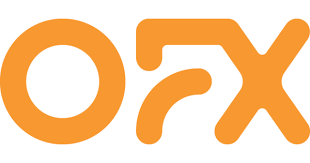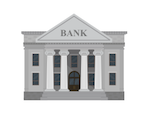How to Transfer Money from Canada to France
Canada to France Guide
Summary
Canada and France share diversified and mutually beneficial economic and trade relations. The two countries have expanded partnerships in a number of areas, including direct investment, political cooperation, and agreements on scientific and technological projects. Currently, there are no restrictions for Canadian citizens or businesses who wish to transfer money from Canada to France.
Visas, work permits and residency
If visiting France for less than 90 days, Canadian citizens do not need a visa, and may enter the country with only a valid passport. Canadians who plan to stay or work in France on short-term assignments must apply for a short-stay visa through their nearest French consulate. For Canadians seeking permanent resident status, France requires the submission of a long-stay visa application before arrival and a residency permit application once within the country.
Buying property in France
France has strict regulations governing the purchase of land or real estate, for both citizens and non-citizens. If you plan to make a high-value purchase such as this, it is recommend to engage a real estate professionals specialised in the French market. Once all steps have been completed, Canadian citizens can arrange an international currency transfer to fund their property purchase.
The estate agent, or agent immobilier, is issued a professional license by the French government and is qualified to carry out property transactions on behalf of both the buyer and the seller. The agent also carries professional insurance, ensuring their clients are protected in the event anything goes wrong with the transaction. The agent can provide information on all estimated fees and property charges.
The notary, also referred to as the notaire or matre, advises the buyer on French property law and is responsible for preparing the property documents, including the sales contract (Compromis de vente). The matre will also confirm the sellers title and ensure that there are no existing mortgages on the property. The matre provides a financial guarantee to their client through indemnity assurance.
Taxation
Canadian residents living abroad must declare their earnings and file tax forms annually. They must pay Canadian taxes on their worldwide earned income. In France a person is considered a tax resident from the day they arrive, whether their stay is temporary or permanent. Residency of at least 183 days will qualify an individual to pay taxes, starting from the day of arrival. However, the two countries have signed a bilateral tax treaty, which prevents double taxation.
When planning for taxes, keep in mind that there are no restrictions when sending money to France; however, Canadian law requires that the government be notified when transferring funds from a foreign account into a Canadian bank account. It is recommended to consult tax professionals to be sure you fulfill all requirements under each countrys laws.
Voting
Canadian citizens living abroad may vote in the Canadian Federal Election as long as they hold Canadian citizenship and are 18 years or older. Voting rights for Canadian citizens living abroad were granted in 1993, but there is a five-year time limit to these voting rights. Once this five-year limit has expired, a Canadian citizen must return and resume residency within Canada before being permitted to vote again in Canadian elections.
Canadians studying in France
In 2003, the two countries created the Canada-France Youth Exchange Program, which allows Canadians under 35 years of age to study in France or complete an internship using a special type of student visa. Once in France, the student must visit their local Prefecture to validate their student visa and obtain a resident permit. If planning to study in France for less than 90 days, Canadian students do not need a short-stay or student visa. There are no restrictions for individuals who wish to transfer money from Canada to France to pay student fees.
Healthcare
France requires all residents to have health insurance. The majority of residents in France qualify for the state health insurance, scurit sociale. Canadian citizens must register with CAPM (Caisse Primaire dAssurance Maladie), to receive coverage in the state health system, and must provide their income details, which is usually done by submitting a French tax return. Because French tax returns are only filed once a year, if a non-citizen has not declared themselves a tax resident, they may show a Canadian tax return, a pay slip, or pension statements as evidence of income. It is recommended that private health insurance be acquired, as well, as the CAPM does not cover all medical costs.
Importing from France to Canada
France is Canadas eighth-largest trade partner, with goods exchanged between the two countries amounting to C$8.1 billion in 2012. France is also the eighth-largest source of foreign direct investment (FDI). Imports from France to Canada include mechanical and electrical equipment, aerospace products, pharmaceuticals, and beauty products. Bilateral trade in services between the two countries amounted to nearly C$5 billion in 2011, making France Canadas second-largest European services trade partner, and the third largest in the world.
In 2012, the stock of French FDI in Canada totalled C$14.8 billion, which is equivalent to 2.3% of all FDI in Canada and 7% of all FDI from Europe. Over 500 French companies have their head offices located in Canada, spanning the banking, insurance, services and technology sectors. The two countries have also invested in a variety of technological and scientific partnerships covering areas such as aeronautics development, biotechnology, green technologies, advanced materials, renewable energy, and information and communications technology.
Frequently Asked Questions
Are the money transfer companies shown above safe to use?
Yes, all the companies are safe and fully-regulated money transfer services.
Each are authorised and regulated by the relevant authority such as the Financial
Conduct Authority(FCA) in the UK, FinCEN in the US, FinTRAC in Canada or ASIC in Australia.
How long does an international money transfer take?
The speed of delivery will depend on where the money is being from and to and how
you are sending and receiving the money. Transfers sent using bank to bank transfers
can depend take anywhere from minutes to days and you should check the time estimates
from the relevant provider. Debit and credit card payments sometimes allow for faster
transfers for smaller amounts.
How do I use FXcompared?
First review the comparison results (such as for a table above) for a given amount
of money sending from Canada to France. Then select a provider based on
factors such as price, speed, their rating and click the green button to be taken to
their website. From there, you can register and sign up for an account. Once you have
done that and the provider has verified your identity to ensure the money can be send
safely, you will be ready to transfer money.
What payments methods can I use to send money overseas?
The results shown above are typically for bank to bank transfers. It is possible
via some providers to pay in your funds for the transfer via cash, debit or credit
cards as well but this is usually reserved for smaller amounts. Some providers also
give you different options for how the money will be received - to a bank account
(most common), to a debit card, to cash or to a digital or mobile wallet.
What if the price shown above isn’t exactly what I am offered when I try to transfer money?
There can be a number of reasons why the final price you are offered may be different
to that shown in the table above. Exchange rates between two currencies change all
the time and is the most common reason. Additionally, some providers offer different
pricing depending what method you are using to send funds or how the funds will be
received. Others may offer you a premium service for faster payments. In some cases
FXcompared has a special rate with a provider and this is reserved for first time
customers who sign up to the provider starting from FXcompared’s website.
As prices do change often, be sure to confirm the total cost with the provider
before transferring money.
How we make money
FXcompared is an independent, advertising-supported comparison service where we have commercial relationships with some of the providers listed. When you use us to sign up to a money transfer provider we have a commercial relationship with, we get either a flat fee or a commission from the provider you choose but this does not cost you anything extra and our site is free to use. The ability for companies to sign-up and retain customers may impact how and where these providers appear on this site, including, for example, the order in which they may appear within listing categories but you may reorder the listings. Other factors, such as our own proprietary website rules and the likelihood of a customer being on-boarded to a provider impact how and where products appear on this site. FXcompared does not include the entire universe of available international money transfer companies.
Exchange rates update frequently and the pricing shown in the comparison tables is indicative only and based on a first time transfer for a new customer signing up via FXcompared. The pricing does not reflect any special rates individual customers may be offered by a provider, either on sign up or rates for any repeat transfers and there may be other lower priced providers not listed on FXcompared. FXcompared is not an FX trading platform and should not be used to inform any FX trading decisions.
All reviews are prepared by FXcompared. Opinions expressed therein are solely those of the reviewer. The information presented in the review is accurate as of the date of the review. Check with the providers directly for the most current information.
Your Feedback
We welcome all suggestions for improvements. Send us an email at support@fxcompared.com.
Latest Money Transfer News Articles for Canada









